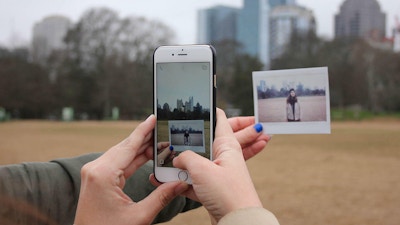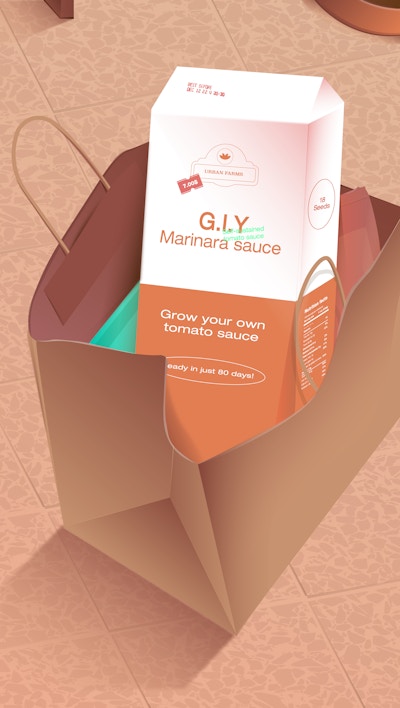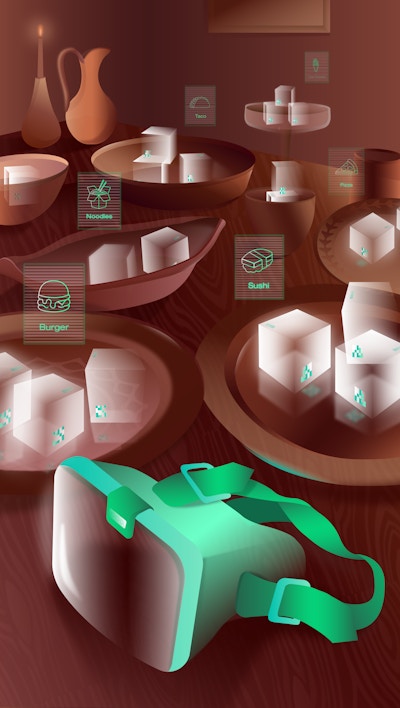Future Dualities: Fast & Slow
We are speeding up while slowing down. This is part three of our Future Dualities series. If you’re new here, see the introduction and part two, Future Dualities: Community & Independence, before reading on.

Contact info for Eden Dotan
Contact info for Lasse Underbjerg
Global Future Lab Director
Thinking ahead is messy. In futurism, it's a widely accepted fact that we can't predict one true future. There is not one direction forward, but many different — sometimes contradictory — directions happening at once.
Paradoxically, we humans still love a simple story; Good and bad. Us and them. But more than ever, we need to shift away from simplified, binary thinking. If we want to design truly sustainable futures for both planet, people, and profit, we need to stop oversimplifying our choices. Explore the continuum, present and beyond. But it's not an easy feat.
To start, we interviewed thinkers and creators from across the world and across competencies to get a deeper and wider perspective on the possibilities and pitfalls ahead. Our conversations led us to five overarching dualities through which we can view, explore, discuss and even begin shaping strategies for potential futures.
This article will dive into the second of these five dualities: Fast & Slow.
Fast: Radical change tests the limits of human adaptability
Humans are naturally resourceful and adaptive; our very nature is one of continuous evolution. But technology is advancing at a rate more rapid than most of us can process or understand.
'I don't need to wait for consumers' words to understand how they feel and what to offer them. I can read their facial movements. This will be integrated into sales tactics.' — Oded Maimon, Oracle Chair Professor at Tel Aviv University
We can print everything from a beating heart to sustainable footbridges. Data has become so prolific that scientists are working on storing it in liquid hard drives. AI outperforms human competitors in activities ranging from gaming to cancer screening.
'We need more philosophers working alongside technologists. How can we regulate technologies before disasters happen?' — Alejandra Gonzalez, Innovation Consultant
This pace of change will continuously challenge what it means to be human and what we contribute to society. The race to re-think, re-learn, and re-skill will become ever faster and test the limits of human adaptability. As a result, many will benefit, while many will be left far behind.
'Technology will polarise two sets of people: The ones who can afford to follow, learn, experience, and comply with it, and the ones who get left behind.' — Laura Schwamb, Founder of Project61
Consider the implications for your organisation. In a future of increasingly accelerated change, you need to adapt to survive.
- How adaptable is your organisation? How can you heighten your adaptability?
- How do you evaluate what changes you need to respond to?
- What is your role in the re-skilling of employees?
Slow: Searching for meaning forces us to slow down
No matter how the world around us changes, human needs forever stay the same: shelter and security, love and belonging, meaning and fulfilment.
'We forget so fast. This idea of COVID-19 and the new normal…The day people could go out again, they were buying clothing at Zara.' — Gaston Lisak, Founder of Random Happiness
But in the face of exponential change and the uncertainty that comes with it, meaning has become hard to find. Life in the fast lane has left little time to stop and smell the roses. To contemplate why we are here and what makes us happy.
'We think everything is accelerating. But most things are slowing down (except temperature). Population growth is slowing. Technological change is slowing.' — Dan Hill, Director of Strategic Design, Vinnova
And in response, we are slowing down. Focusing on the bare necessities. Ditching our smartphones for Light phones. Marie Kondo-ing our homes. Moving to smaller cities. Turning to new, secular religions — yoga, astrology, Brené Brown, hallucinogens — that offer us some meaning to grasp on to.
'As a society, we're going through a huge crisis of meaning. The new visibility the internet provides shows such gaps in opportunity. If you're in a small town in middle America and you look at influencers in LA or the lives of the corporate elite in NYC, that life feels so inaccessible, so what's the point? We turn to new 'isms' to find meaning and fill the void: Trumpism, Kardashian-ism, and, for the coastal elite, Corporate-Purposeism.' — Nina Montgomery, Author of Perspectives on Purpose and IDEO Design Lead
Consider the implications for your organisation. In a future slowed down, you should take time to reflect, re-focus, and re-purpose.
- Before we rush to create something new, can we re-purpose something existing?
- What lessons have we learned in the past that can help us move forward?
- How can we help our consumers in their quest to stabilise and slow down?
Of course, there is a colourful range between hyper-speed and slow motion. We watch documentaries on minimalism, decluttering and technological detox — on the bus, on the latest retina display screen, wireless air pods in-ear. We receive seasonal, organic vegetable deliveries — in under 24 hours, sorted in our refrigerators so that we don't have to.
Possible futures lie on each end of this spectrum and at any tension points in between. Each of these futures carry implications on diverse industries and markets. And we can begin to understand and explore these implications when we turn imagined possibilities into tangible artefacts.
We use dualities to inspire tangible future scenarios that get designers and businesses thinking, feeling, and beginning to devise and test strategies for the future.
Let's look at eating.
The food and beverage industry is witnessing developments like lab-grown meat on the one hand and movements towards 0-kilometre food on the other. What will our nutritional and dining experiences look like in a future on speed? In a future that has regressed to basics? In the hybrid in between?
Take a look at the possible future scenarios below. What implications could they have for the food and beverage industry? What responsibilities and opportunities could arise for your own organisation?

Grow your own spaghetti marinara.

What meal are you watching for dinner?
Stay tuned. Next up in our Dualities series, Convenience & Consideration. How are we seeing this duality play out today? How could it shape a particular industry in the future? And what questions should you be asking about your organisation moving forward?
To learn more about what lies ahead, we built our very own Futures Generator. Don't forget to take it for a spin - the results may surprise you.
Interested in giving the futures of your business some more thought? We’d love to have the conversation. Get in touch.